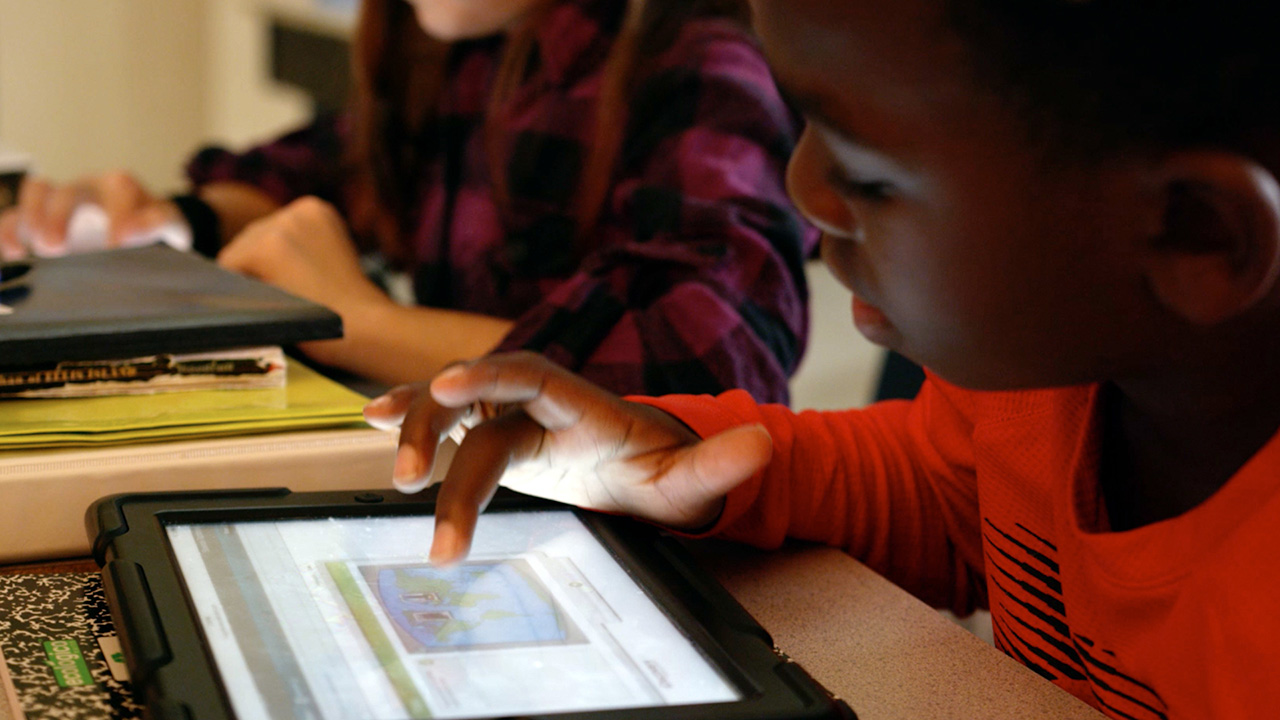Despite having already made a substantial impact on Discovery Education and its community investment work, you are still relatively new to the CEO seat. What advice would you share with incoming or newly appointed CEOs to make the transition of leadership as smooth and effective as possible?
I think the first thing any new CEO entering an established company needs to do is connect to the company’s mission. As a global leader in education solutions, Discovery Education is dedicated to preparing learners for tomorrow by creating innovative classrooms connected to today’s world. I’ve spent my adult life supporting the success of all learners by leading the creation and distribution of innovative education technology (edtech) solutions, which made it easier to connect with Discovery Education’s mission and begin to strategize for the next phase of our company’s growth.
You took the helm of Discovery Education with over 25 years of experience in edtech. It would be great to get your perspective on how the edtech industry’s role in education has evolved over the last quarter century, and where you see it heading in the future.
I think the story of edtech’s role for about the past 25 years leading up to the pandemic was one of slow and steady integration. When edtech burst onto the scene alongside broadband Internet in the 1990s, there was a barrier between technology and education. Edtech companies worked hard to pull down that barrier by providing a new generation of tools that could better scale best teaching practice. Progress was slow and steady until the COVID-19 pandemic shattered that barrier, and the industry started growing at lightning speed to ensure students across the globe had access to high quality education material. We learned a lot about the power of edtech—and its limits—during the pandemic. However, edtech became integrated into everyday instruction to the point where the artificial barrier between technology and education no longer exists. Today, the edtech industry, and the multitude of solutions it offers students and educators, is seen as a key partner to school systems’ efforts to deliver high-quality learning experiences to all students.
Many companies that don’t fall under the edtech umbrella can also play a significant role in improving the lives of teachers and students by supporting future workforce development initiatives, campus visits, grants, etc. How would you describe the current role of business in education? Any insights or hopes for the future?
The private sector has always played a critical role in education—from making school supplies to books to the latest devices and edtech services—and the involvement and breadth of businesses in education will only continue to grow. The impact of the private sector working with educators is amplified when like-minded companies work together.
For example, the STEM Careers Coalition – a multi-stakeholder initiative including Boeing, the Caterpillar Foundation, DuPont, LyondellBasell, Nevada Gold Mines, the PepsiCo Foundation, Proctor and Gamble, Stanley Black and Decker, Discovery Education, and many more—is empowering educators to teach STEM education, as well as foster and promote equity and access to quality education. Another example of this business to classroom engagement was just launched through the Sustainability Education Coalition. Together with Subaru of America, LyondellBasell, Nucor, Honeywell, and the National Environmental Education Foundation, this first-of-its-kind initiative is filling an urgent need for digital resources that will empower educators to help K-12 students learn to make informed decisions and take responsible actions supporting sustainability.
Additionally, Discovery Education is developing an innovative new way for the current workforce to directly connect to the future workforce. It is called Career Connect and is a new platform that will spark students’ curiosity in their futures by connecting employee volunteers, who are eager to talk about their own career journeys, with classrooms across the U.S. More to come on this exciting new effort.
These types of industry collaborations, which bring together key stakeholders to solve specific educational challenges, are a tremendous template for corporate involvement in education and give me great hope for improving the key challenges facing education today.
Congratulations on Discovery Education’s recent acquisition of DreamBox Learning, a pre-K through 12th grade edtech provider serving over 6 million students and 600,000 educators nationwide. How do you see this acquisition furthering Discovery Education’s mission to “prepare learners for tomorrow by creating innovative classrooms connected to today’s world?”
Discovery Education’s acquisition of DreamBox Learning comes as school districts seek platforms featuring a wide range of researched-based core and supplemental resources to improve student outcomes. The addition of DreamBox Learning to the Discovery Education family of solutions offers educators worldwide:
- More options. The addition of DreamBox Learning’s intelligent, adaptive learning technology to the Discovery Education suite of award-winning solutions provides educators and students now have even more options for creating engaging, personalized learning experiences across a variety of disciplines.
- More expertise. The combined DreamBox Learning and Discovery Education team is made up of purpose-driven subject matter experts, industry-recognized engineers, statisticians, veteran educators, and professionals from all walks of life. With deep experience working with school systems worldwide, Discovery Education is poised to build even more powerful partnerships supporting the success of all learners.
- Deeper impact. Discovery Education’s highly scalable global footprint—which already serves 4.5 million educators and 45 million students in more than 100 countries—offers the education community a generational opportunity to help all children excel at learning no matter where they live, who they are, or how they learn.
Together, our wide range of solutions, deep experience, and expertise in education, as well as our proven ability to provide impact will supercharge our efforts to prepare learners for tomorrow by creating innovative classrooms connected to today’s world.
Between the impact created by your acquisition of DreamBox Learning and the newly established Sustainability Education Coalition, Discovery Education is leading by example as a force for good in the world creating a better society through business. What advice would you offer other business leaders who might be struggling with when and how to take action?
On some issues, there is a clear-cut moral reason to take a stand. However, on other issues, there is less clarity. We’ve approached this question through your work at CECP, and insights from experts at 220+ leading companies affiliated with your organization. Such as these six relevant points for CEOs and their teams to evaluate and determine what and how they should speak up:
- Live your corporate purpose.
- Contemplate how the issue affects key stakeholders.
- Engage with humility, vulnerability, and credibility.
- Be transparent by showing plans, progress, and measurement.
- Determine how your company is uniquely positioned to contribute and collaborate in helping to solve the issue.
- Diverse voices matter.
This approach has been incredibly helpful to me as I’ve worked through some of the challenges facing all business leaders.


